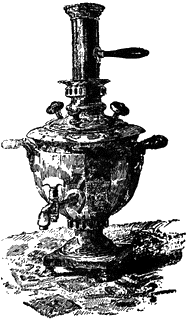
The Brothers Karamazov



1880, Fyodor Dostoyevsky
“What is hell? I think it is the suffering of one who can no longer love.”
While this book was certainly very moving at times, I personally cannot see why some go as far as calling it the greatest work of all time. Dostoyevsky’s weaker points in writing are obvious in this book, such as his tendencies to focus on unnecessary details, his exaggerated sentimentality, and his discussion of the same themes over and over. Perhaps I’ve simply grown jaded to the good aspects of his books after reading, like, three others, but all the same, I found this one a bit underwhelming, especially for his so-called magnum opus.
I’ll first discuss what I liked in the book. “The Grand Inquisitor” was among the best chapters of all literature I’ve ever read, despite not being particularly religious. It really shows what Christianity means to Dostoyevsky — how much he struggled with belief because of the world’s relentless suffering and confusion, how deeply he loved all people and wanted to protect the innocent, and what convinced him to have faith despite everything. All the emotions in it were orchestrated extremely effectively, it was so filled with sorrow and outrage and compassion. On the evening I read it, my mind was swirling all night with excitement and fascination — a single chapter has never had such a profound effect on me.
The themes in this book have had the greatest impact on me of all his works. His other books tend to focus more on the problems he associates with modern philosophy and culture, but here, he focuses heavily on his solutions, which I’ve closely followed. I’m very interested in his philosophy of embracing suffering to understand and empathize with others more, or to redeem yourself — it’s just so Dostoyevskian, so tragically beautiful. To him, love and suffering are interlinked. This link also shows in the way he tries to love humanity as a whole. He views everyone in the world as being as simple as children inside, and, loving them with all his heart, wants to take the blame for everyone else’s sins. It perhaps seems odd, but at the same time, isn’t that like what Christ did? True love isn’t given for one’s own personal happiness, but because one views such beauty in some greater cause that they’d give their lives to even feel worthy of it.
followed. I’m very interested in his philosophy of embracing suffering to understand and empathize with others more, or to redeem yourself — it’s just so Dostoyevskian, so tragically beautiful. To him, love and suffering are interlinked. This link also shows in the way he tries to love humanity as a whole. He views everyone in the world as being as simple as children inside, and, loving them with all his heart, wants to take the blame for everyone else’s sins. It perhaps seems odd, but at the same time, isn’t that like what Christ did? True love isn’t given for one’s own personal happiness, but because one views such beauty in some greater cause that they’d give their lives to even feel worthy of it.
As characters, I appreciated Kolya and Ivan most. Kolya’s one of Dostoyevsky’s more realistic depictions of youth (speaking as a kid myself) — young people try to act harsher and bolder than they are to seem grown-up and impress their peers. Ivan was a very specific but realistic depiction of somebody who sees the good in religion, but just can’t accept it because of its clash with and modern science and his nihilism, which he loathes but cannot disagree with.
“You are going to perform a virtuous deed, but you don’t even believe in virtue… what is virtue to you? Why drag yourself there if your sacrifice serves no purpose? Because you yourself don’t know why you’re going! …”
Alyosha was an interesting character too — I read somewhere this book is steeped in grief for the author’s dead son, and it shows.
So what did I not enjoy? A large part of my frustration with the book was how long unnecessary sections were. This is characteristic of Dostoyevsky, but in his other works, those sections were actually funny or interesting. The trial spans over 100 of the book’s 700+ pages and mostly consists of characters’ speculations and testimonies. It was quite dry to me, although to tell the truth, I didn’t find the plot as a whole interesting, either. I suppose this is because I mostly read books for their themes, and while most of Dostoyevsky’s novels closely tie the plot and themes together, here, the latter are distributed more through subplots, lessening the significance of the main one.
While I liked some of the themes, I also feel Dostoyevsky was too idealistic in illustrating them. Some characters have entire changes of worldviews and personality in a matter of minutes or hours because of conversations; while I don’t deny words can have deep impacts on people, I just don’t find such quick transformations realistic, especially for people who have been acting how they did for years. Zosima’s moral principles were admirable, but the backstory Dostoyevsky gave for them is so maudlin, so filled with weeping and kissing and sentimental outbursts, that it’s hard to take seriously. (In my opinion.) It’s funny how Dostoyevsky’s writing took on the quixotic, “Schilleresque” quality he once so despised.
Even the themes I enjoyed were a little tedious to read, because the book mostly summarizes all the themes discussed in his previous books, introducing little that is new besides a patriotic twist. Perhaps people who are newer to Dostoyevsky will enjoy this book more than I did, being less used to his themes than I am.
Back
Page created March 19, 2025.